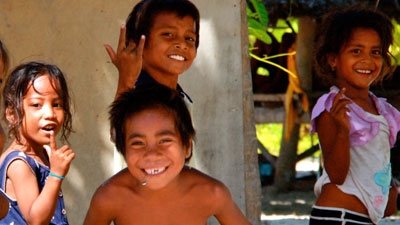Around the world more children have equal access to basic education. However, while many more children are now enrolled in school than ever before, evidence from developing countries suggest increases in enrollment are not being accompanied by improvements in learning outcomes. Results from assessments of basic reading skills in Vanuatu and Tonga reveals that students are failing to reach the reading comprehension and writing outcomes expected at their grade level.
To help educators develop local knowledge about the specific skills students are struggling with and the factors that appear to contribute to reading development, The World Bank provided technical assistance to conduct early reading assessments in Tonga and Vanuatu.
The Vanuatu early grade reading assessments (VANEGRA) were conducted in November, 2010 [w1] to measure how well children in Anglophone and Francophone schools are learning to read in English and French language respectively, in the first grades of primary education. A similar assessment -the Tonga early grade reading assessment (TEGRA), was carried out in Tongan language in November, 2009.
Key findings from the three assessments are:
- The three assessments found that there are low levels of even basic knowledge among students in the sample. After three years of schooling, many students were unable to provide a single correct answer in a subtest measuring their ability to identify sounds in letters and to match letters and sounds to create words. This was found among 20 percent of Grade 3 students in Tonga and Francophone students in Vanuatu, while the same figure reached 30 percent among Grade 3 Anglophone students in Vanuatu.
- Despite increases in oral reading fluency across grades, most students in Tonga and Vanuatu could not read fluently for comprehension. For both the English and French language assessments in Vanuatu, only 2 in 10 students were able to read fluently to understand most of the text they read after three years of schooling, while for the Tongan language assessment it was 3 in 10 students.
- The three assessments suggest that girls read better than boys. Comparison of boys and girls in the sample who were able to read fluently at the country-defined reference standard:
- English assessment in Vanuatu: 7% of boys, 11% of girls
- French assessment in Vanuatu: 10% of boys, 16% of girls
- Tongan language assessment: 9% of boys, 25% of girls.
- Teachers that know how to promote reading regularly in their classroom are helping develop essential basic reading skills for both Vanuatu and Tongan students. In Vanuatu, teachers that read aloud to students, and who made use of the recommended school texts had a positive effect on the reading of both boys and girls. Teachers that owned the Tongan Reading Text guide and used the Tongan Reading Recommended Texts had a positive effect on the reading of both boys and girls.
- Family literacy plays an important role on the reading outcomes of students in Tonga and Vanuatu. Students who have a literate sibling, have books at home, demonstrated better reading outcomes. In particular, students who reported having a literate family member that reads with them at home showed better outcomes.

